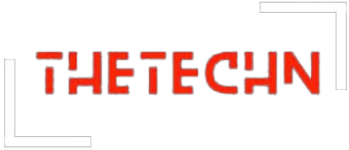In today’s world, computers are woven into the very fabric of our lives. We use them for work, play, learning, and connecting. But what exactly is a computer, and how does it work?
Think of a computer as a machine that can ingest data, process it, store it, and output it. It’s built from a symphony of hardware components, like a conductor leading the orchestra of processors, memory, and input/output devices. At its core, the magic of a computer lies in the concept of digitalization. Information is translated into a language of 0s and 1s, allowing the brain of the computer, the processor, to manipulate it with lightning speed.
History:
The seeds of computer science were planted in the 17th century with Blaise Pascal’s mechanical calculator. In the 19th century, Charles Babbage envisioned the first fully automatic calculating machine. Then, the 20th century witnessed a burst of innovation. In 1943, the ENIAC, the first electronic computer, came to life. The 50s and 60s saw the birth of modern programming languages and the dawn of computer networks. By the 70s and 80s, computers grew smaller, faster, and more efficient, paving the way for the personal computer revolution. And the 90s and 2000s brought the internet and web, forever transforming how we communicate and share information.
Branches of Computer Science:
This vast field branches out into diverse specialties, each with its own fascinating focus:
- Theory of Computation: Delves into the mathematical foundations of computing, exploring what computers can and cannot do.
- Software Engineering: The art and science of designing, building, and maintaining software, the digital blueprints that tell computers what to do.
- Computer Architecture: Peering into the intricate structures of computers, understanding how hardware components work together to create powerful machines.
- Artificial Intelligence: The quest to create intelligent machines, from self-driving cars to language-understanding robots.
- Data Science: Extracting insights from the vast oceans of data that surround us, helping us make better decisions in every field.
Applications:
Computer science isn’t just theory; it’s all around us, shaping our lives in countless ways:
- Personal Computing: From browsing the web to editing photos, our daily lives are filled with interactions with personal computers.
- Cloud Computing: Accessing resources like storage and software over the internet, freeing us from the limitations of physical hardware.
- Computer Networks: Connecting devices across the globe, enabling communication and collaboration on a global scale.
- Operating Systems: The maestros conducting the orchestra of hardware and software, ensuring everything runs smoothly.
- Programming: Weaving the spells that bring computers to life, creating the programs that power our world.
- Artificial Intelligence: From medical diagnosis to fraud detection, AI is transforming industries and reshaping our future.
- Data Science: From predicting market trends to understanding disease patterns, data science reveals hidden truths in the data deluge.
Challenges and Opportunities:
As with any powerful tool, computer science faces its own set of challenges:
- Security: Protecting computer systems and data from ever-evolving threats is a constant battle.
- Privacy: Balancing the benefits of technology with the right to privacy is a complex ethical question.
- Accessibility: Ensuring equitable access to technology and its benefits for all is crucial.
But amidst these challenges lie immense opportunities:
- Innovation: From curing diseases to exploring space, computer science pushes the boundaries of what’s possible.
- Job Growth: The demand for skilled computer science professionals is booming, offering exciting career paths.
- Improving Quality of Life: From personalized healthcare to smarter cities, computer science holds the potential to make our lives better in countless ways.
Computer science is more than just a field of study; it’s the language of our age. It’s the driving force behind countless innovations, the key to unlocking the future, and a powerful tool for shaping our world. So, whether you’re a tech enthusiast or simply curious about the digital world around you, delve into the fascinating world of computer science and discover the endless possibilities it holds.





